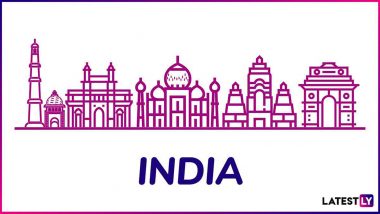New Delhi, Mar 23 (PTI) India should set up resident missions in the remaining 48 of the 193 UN member-nations in a time-bound manner in line with its aspiration to become a permanent member of the UN Security Council, a parliamentary committee suggested on Wednesday.
The committee, in a report tabled in Parliament, also said that the budgetary allocation to the Ministry of External Affairs (MEA) for 2022-23 was insufficient keeping in view India's rising global profile.
The parliamentary committee on MEA recommended to the government to set up resident missions in the UN member countries where India is yet to open such presence.
"India aspires to be a permanent member of United Nations Security Council (UNSC) and to achieve this objective, our presence in all UN member countries is crucial so as to coordinate our efforts with their Foreign Offices," it said.
The total number of UN-member nations including India is 193.
"The committee has noted that out of 193 UN member countries (including India), India doesn't have resident missions in 48 countries," the committee said in its report.
The panel, headed by PP Chaudhary, said the MEA has informed that it has identified 11 countries where resident missions can be set up after obtaining approval from the Union Cabinet.
Emphasising the need for having resident missions in all UN member countries, the committee has recommended that the MEA should chalk out a roadmap for setting up of Indian missions/posts in the remaining 48 countries in a time-bound manner.
On the allocation to the MEA, the committee observed that the outlay for it in 2022-23 is Rs 17,250 crore which is 4.98 per cent less than the budget estimate of the current fiscal and 7.81 per cent more than the revised estimate.
"Despite an increase in the overall budget of the government of India, the allocation made to the MEA in percentage terms has witnessed a downward turn during the last four years," the panel said.
It said keeping in mind India's rising global profile, engagement and footprint, the allocations made to the MEA are "evidently insufficient".
The committee said it was hopeful that with the subsiding of the COVID-19 pandemic, regular activities of the ministry will resume and more funds will be needed to pace up the delayed projects and exchanges.
The committee recommended that the allocations made to the MEA should be increased substantially and be brought at least at the level of one per cent of the government's overall budget every year.
The panel also welcomed the government's decision to roll out e-passports with enhanced security features from 2023 onwards.
It also recommended that the MEA should take all requisite measures to ensure data privacy and security of the Indian citizens as contained in the chip-based e-passports.
(This is an unedited and auto-generated story from Syndicated News feed, LatestLY Staff may not have modified or edited the content body)













 Quickly
Quickly
















